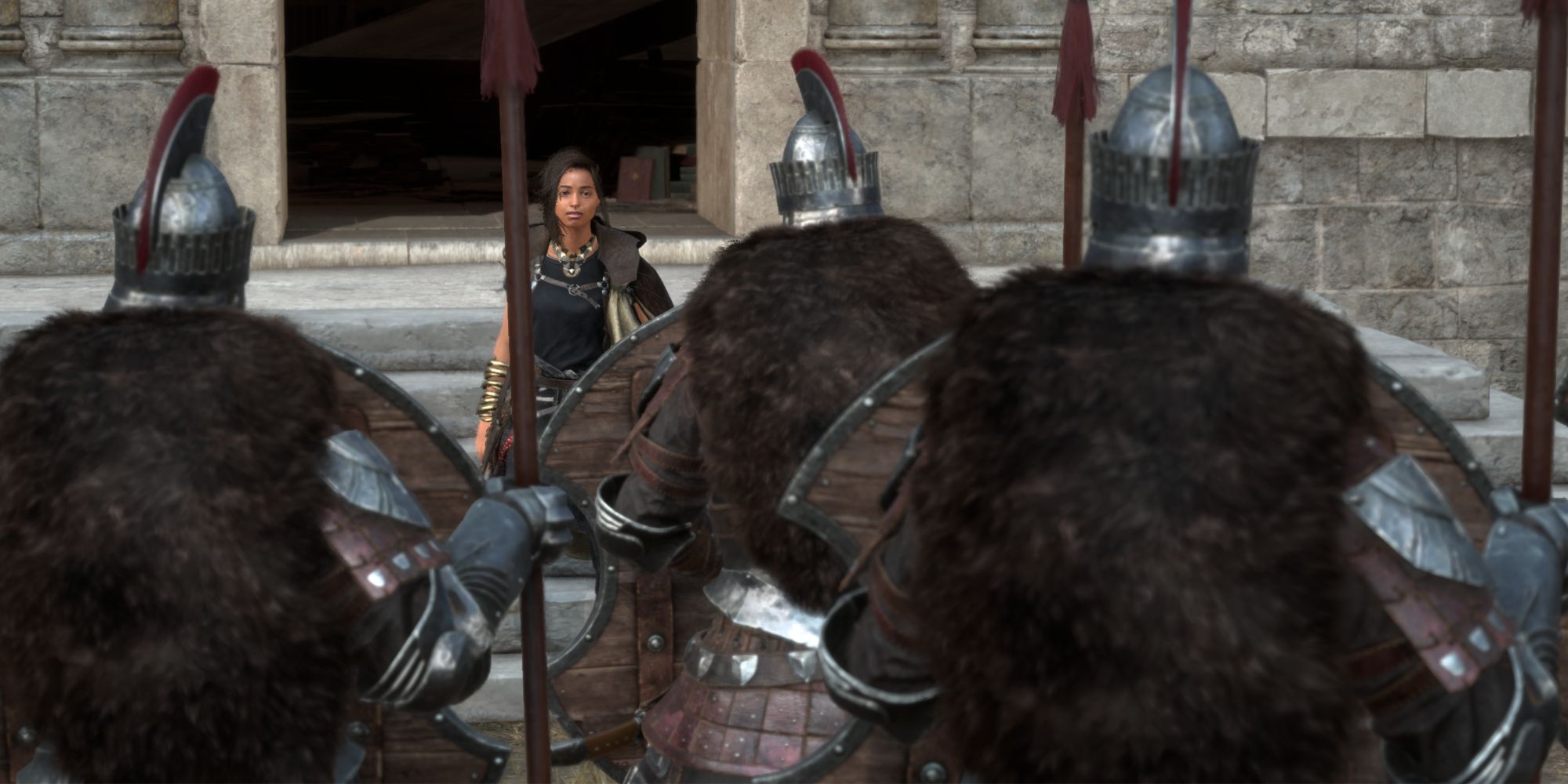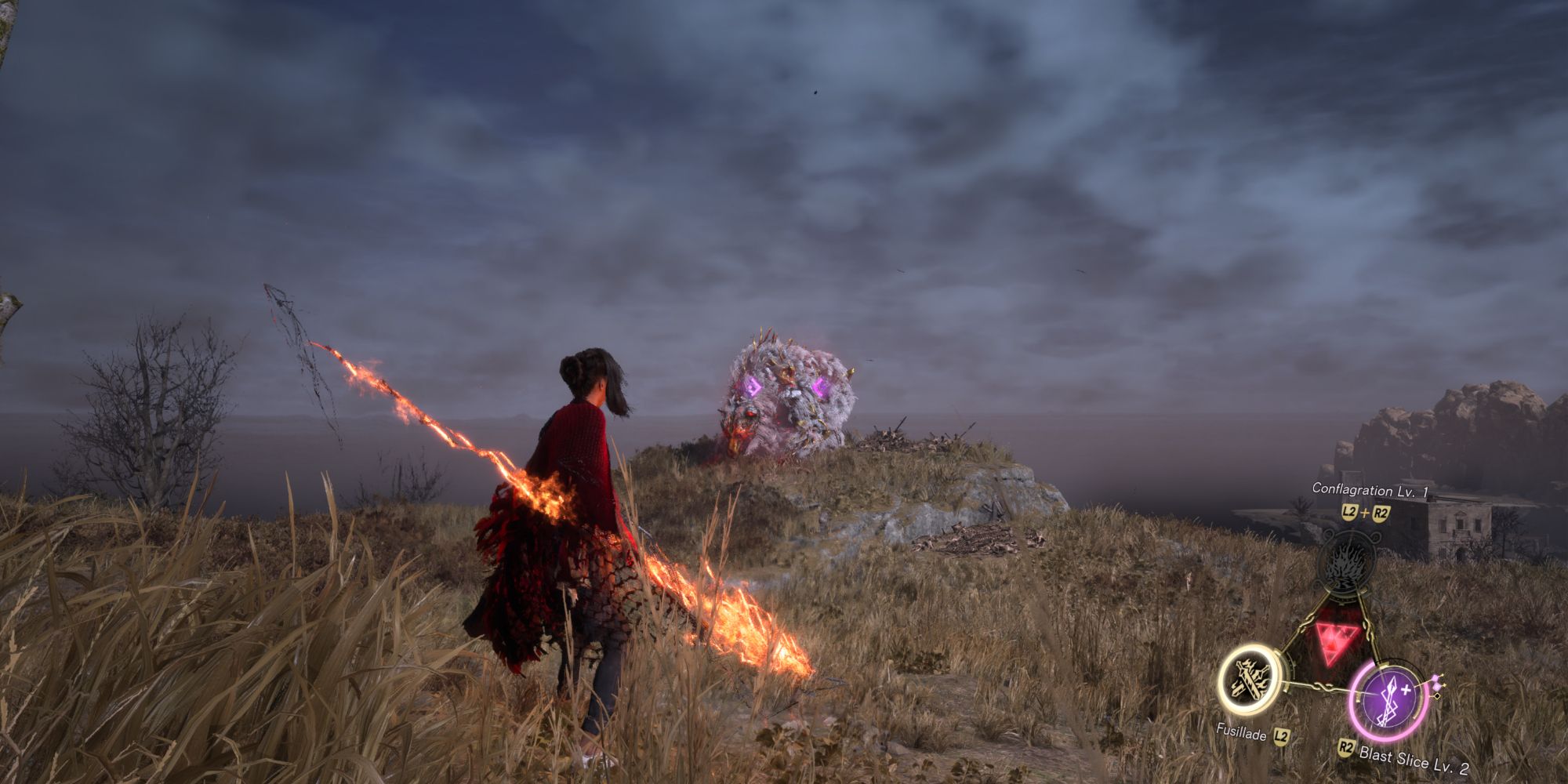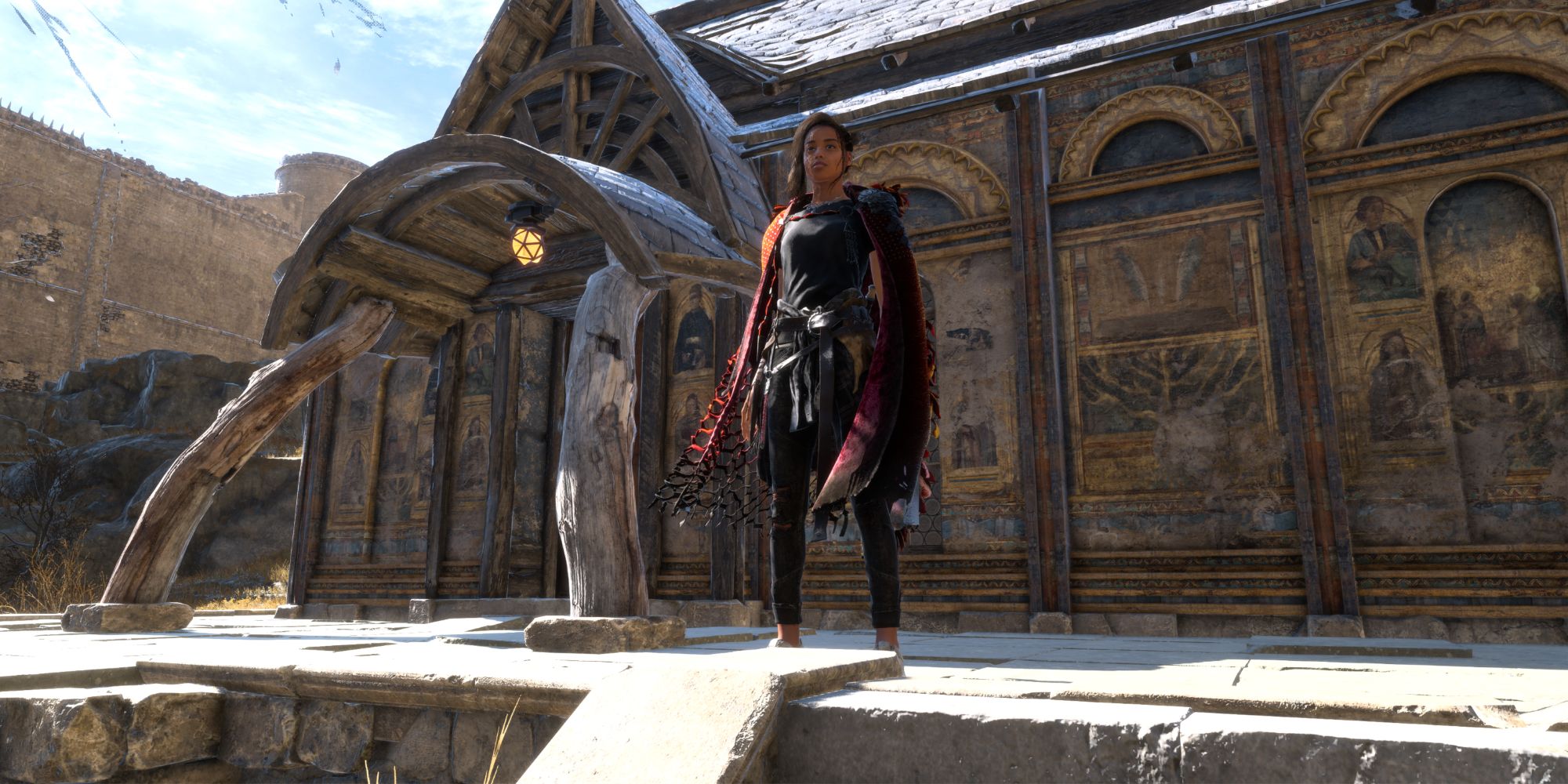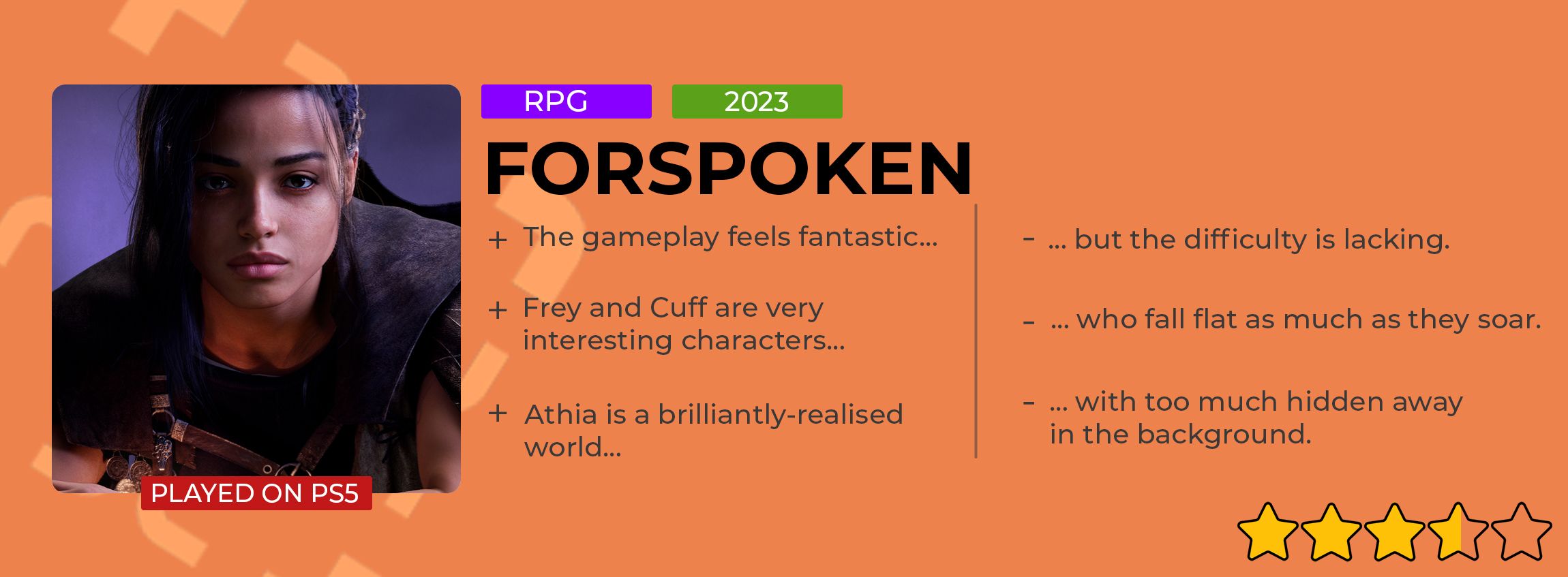After being dealt only the worst hands in life, Forspoken’s Alfre Holland, better known as Frey, stumbles upon a magical cuff that transports her to another land – a land ravaged by a magical plague that turns people into zombies, animals into monsters, and forces those who remain to congregate in a singular safe zone. Frey, as the only person capable of surviving this phenomenon, is the obvious hero-to-be of the piece, but there’s one issue; she resolutely rejects that mantle.
Frey is, in a word, complicated. In two words, frustrating. Her initial reaction to being transported to Athia is to do everything she can to get back home, and she spends the entire game doing this. Though confronted with the reality that she is the only person who can save the Athians from their plight, Frey adamantly refuses to change her mind. Every action she takes is to abandon Athia for her selfish reasons, a fact that is explicitly called out in the third act of the game. It doesn’t make Frey an easy person to like. It’s frustrating to watch a protagonist do everything they can not to be the hero of the piece. There are delightful moments where she lets her guard down and allows herself some joy or companionship, but the majority of the game has her in a sarcastic, joyless mood, which makes for clunky and frustrating dialogue that doesn’t match the largely bright and vibrant world.
Despite what you’d expect from an RPG, there’s no cliché turning point where Frey resolves to save this world. The one deliberately proactive course of action Frey takes is taken for vengeance. In this, though, Frey feels realistic. She’s a 21-year-old woman who has had a very difficult upbringing in a hellish city, so she’s not going to fit the mold of an RPG protagonist, no matter how many dead innocents and ruined villages you show her. When confronted with Athia’s answer to zombies, humans infected by the Break, Frey is horrified – but seconds later she’s ready to mow them down with magic. She’s probably seen zombie movies, sure, but it’s still a startlingly easy transition.
This makes her constant chattering with Cuff, the Jarvis/Grimoire Weiss magical companion stuck to her wrist, draining. Cuff provides a running commentary to almost every action Frey takes, whether it’s opening chests, giving tips on enemies you’ve fought a hundred times before, or just commenting on the fact that you put your controller down for 30 seconds. These back-and-forths are sometimes funny or even enlightening, providing more information about the world of Athia or the protagonists themselves, but more often than not, they’re just quippy doublets that are lifeless at best, and downright cringeworthy at worst.
A nice feature that you’ll only get to experience on the PS5 version of the game is that Cuff barks from the DualSense speakers, emphasising that he’s a voice inside Frey’s head. Thankfully, the game allows you to turn the frequency of this chatter down, or even remove Cuff’s commentary entirely for everything that isn’t a crucial story-related conversation.
Frey’s general outlook means the narrative has to work around her misgivings about Athia. When Forspoken wants you to travel to the edge of the world, you better believe that there’s some magical tree that grows only there, and Frey needs its sap, or she’ll never get home. This sort of thing happens a few times, as Forspoken is incredibly opaque about the lengths it has to go through to get you there. It’s a shame, as Athia is a beautiful world with an incredible amount of worldbuilding, populated with interesting characters – they’re just not utilised well.
The gameplay itself takes a while to get very interesting. You get drip-fed new combat and movement abilities throughout the entire game and unlock the rest through a typical skill tree. The controls feel very good. Darting around battlefields in a frenetic storm of particle effects never gets old, and weaving new and more interesting spells into your tactics feels great. The game could stand to be a bit tougher in general, especially given how many accessibility options it has available, but there are a few harder fights that provide a satisfying challenge.
By the end of the game, Frey has four entirely different spell types to play with, and weaving through them to take advantage of different enemies’ weaknesses and adapt to the situation at hand is a strategic layer to the combat system. The game pairs old with new together well – there are spellcraft challenges that you use to upgrade your spells by using them a certain way (defeat ten enemies weak to this spell, for example), which feels very modern. At the same time, there are many item abilities that you can use to create various loadouts to optimise your strategies, which is a very classic feature. Both of these can be safely ignored on lower difficulties, but they’ll be appreciated by those who enjoy the satisfaction that comes with perfecting a build.
Forspoken best excels at movement. It feels fluid, natural, and gives you plenty of tools to overcome obstacles in various ways. There are a few platforming challenges that require such precision as to be frustrating, but they’re scarce. Once you have the full roster of movement abilities, backtracking and scouring older areas for new experiences won’t feel like a chore, and the game capitalises on this in the latter half of the game with gigantic expanses, letting you bound over them like a cheetah in the savannah. Unfortunately, the game spends many hours constantly interrupting the flow with cutscenes placed too-close together, and the fact that you can’t use parkour in the main city, which would be the perfect place for it, is frustrating.
Athia is full of things to do, but a lot of it is very repetitive and completing it will leave you overlevelled for what comes next. The enemy variety is lacking, many of the points of interest ask very similar things of you despite looking so diverse, and the most interesting one-off encounters (unique optional bosses, challenge dungeons, etc.) are few and far between. I finished the game after 28 hours and almost completely ignored two of the five regions, leaving hours of content untouched, and I decimated the final boss without a single issue. I’m not some god-gamer, the endgame is just unbalanced and seems to make the daft assumption that people won’t explore the world in an open-world game. Forspoken forgets that the audience doesn’t share Frey’s adamant desire to pursue the main quest and the main quest alone.
Despite its flaws, I enjoyed my time with Forspoken. While the narrative is janky at times, the premise is compelling and the world of Athia is exceedingly well-built. The movement is where the game shines, making exploration a joy instead of a chore. The postgame is also surprisingly competent when it comes to dealing with the implications of the main story’s twists and turns, a rarity for open-world games. I didn’t know what to expect when I started playing Forspoken but I came out feeling satisfied.
Score: 3.5/5. A PS5 review code was provided by the publisher.
Source: Read Full Article



